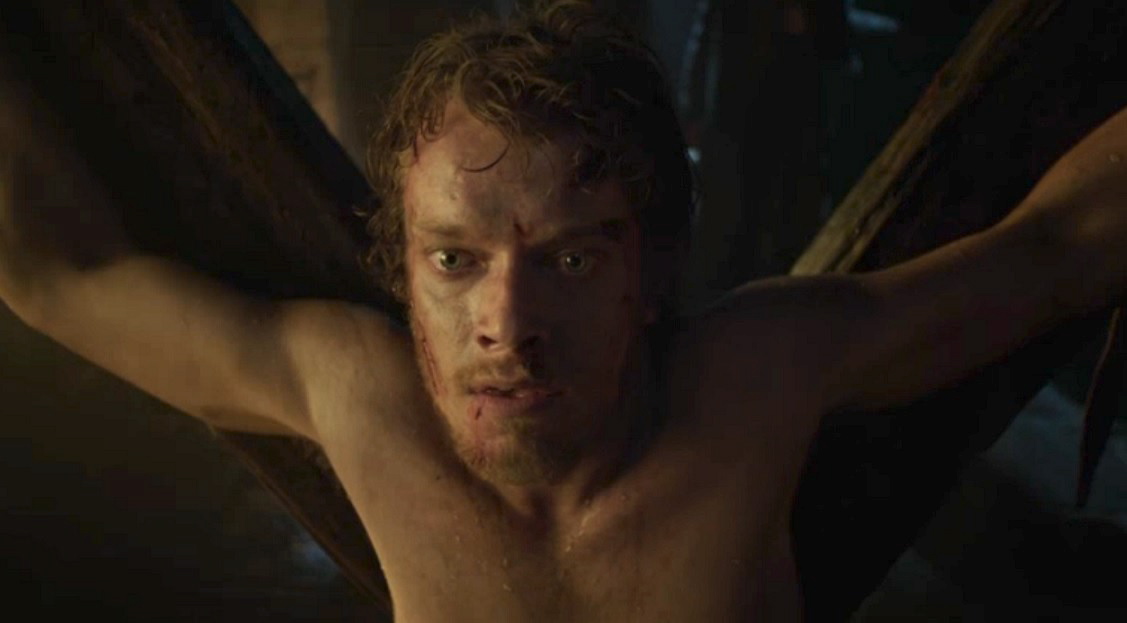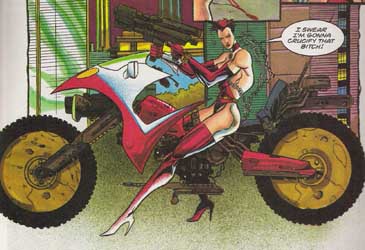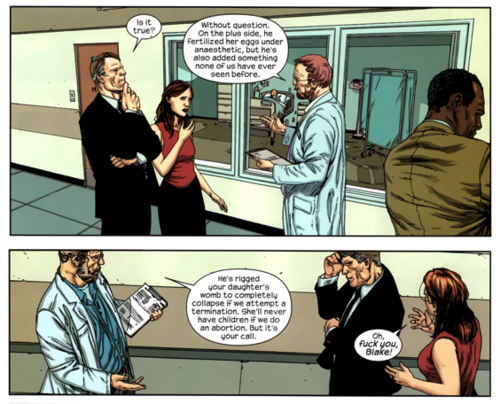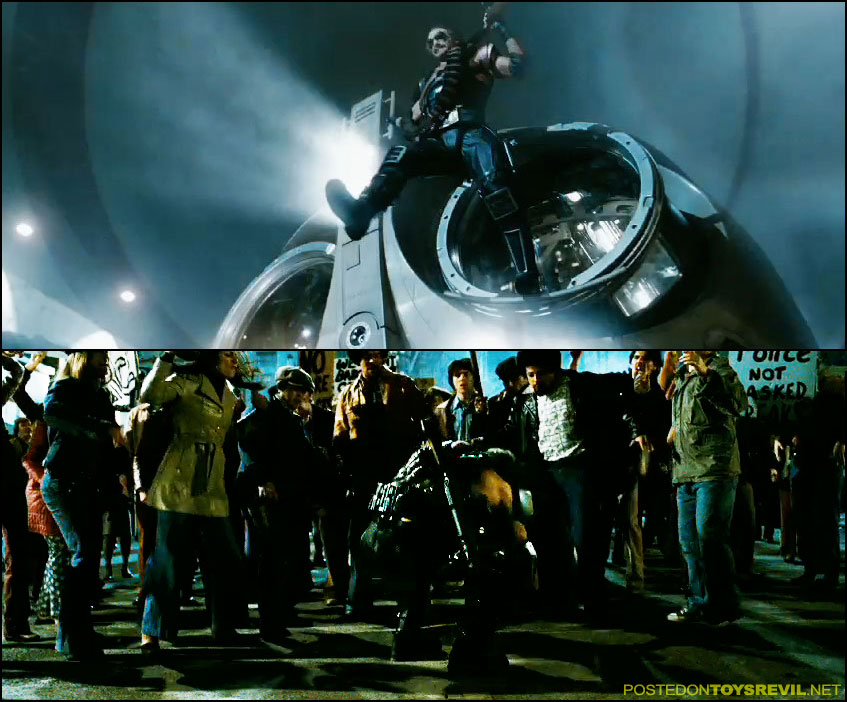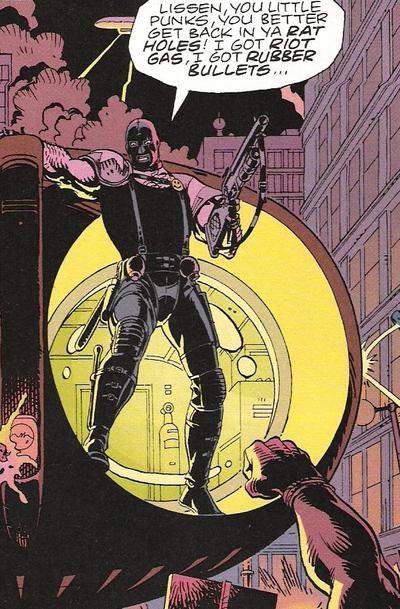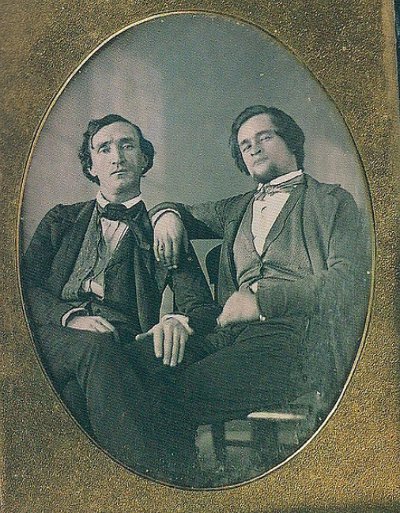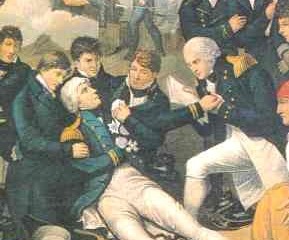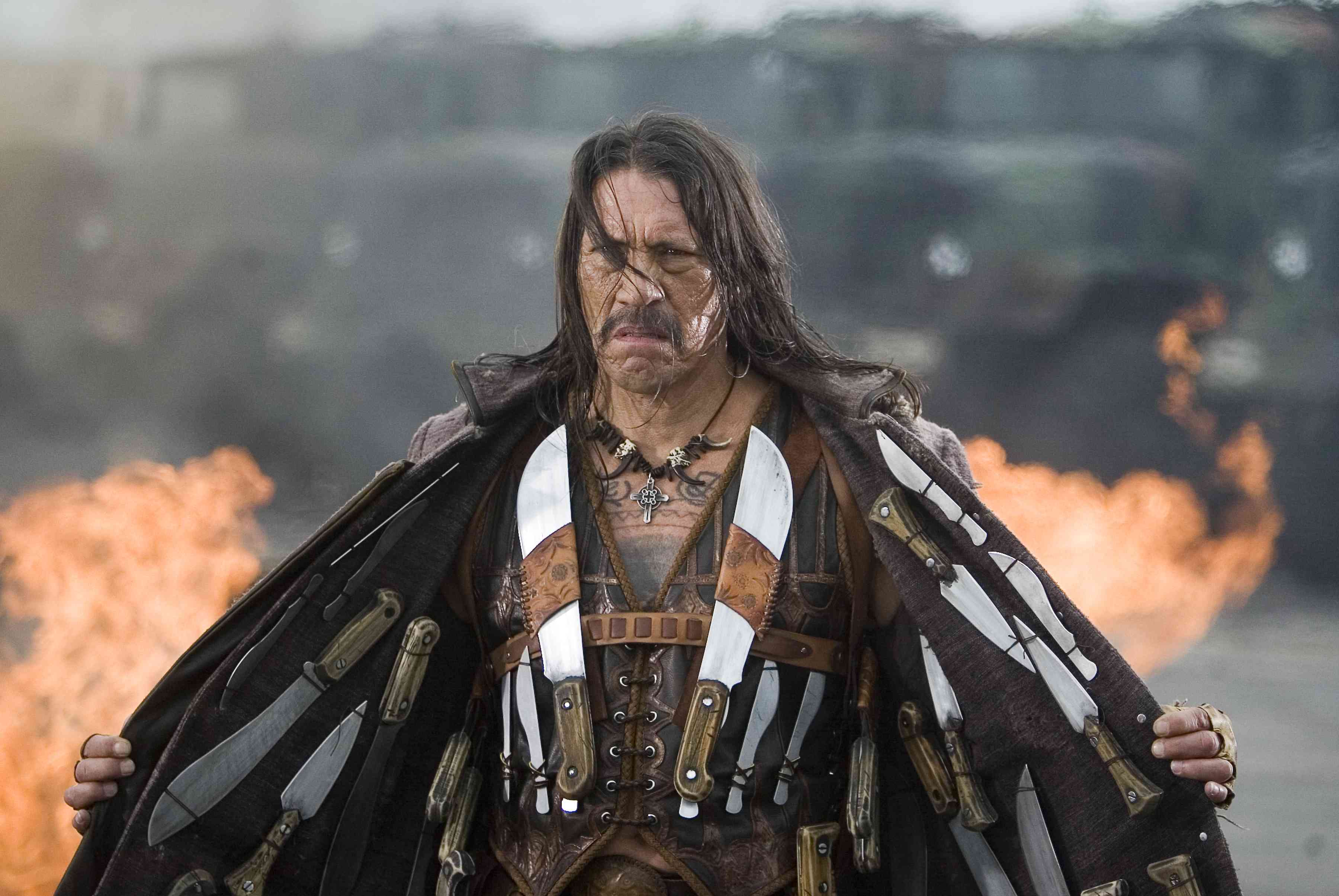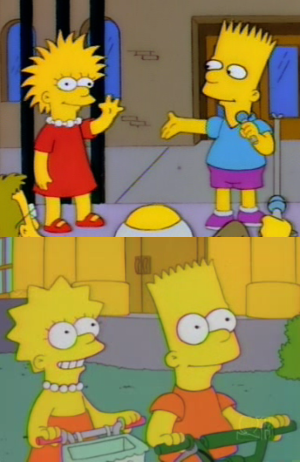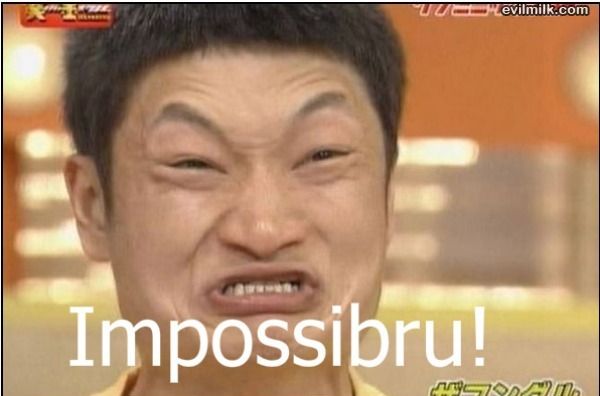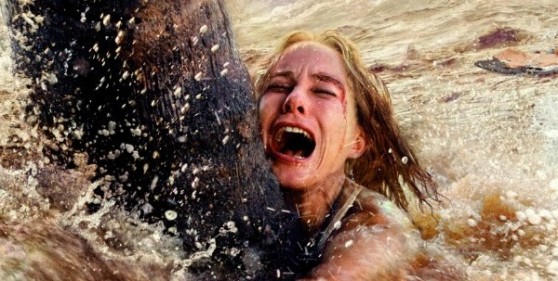For this "ten books which stayed with you" thingy going round, I thought I'd briefly resurrect the blog.
"do not think about it too much" they said, but I'll think about it too much if I want to, dammit! So I listed kinda when I read each one, in vague chronological order.
Futuretrack 5 by Robert Westall (early teens)
About a dystopian England where the wealthy upper and middle class are basically trying to cram the lower class into the cities and eradicate them while breeding nice, traditional rural farmer-types to repopulate. Dark side of the nostalgia which fuels all that stuff like Sherlock, Dr Who, Harry Potter, Downton etc etc.
Polar Star by Martin Cruz Smith (early teens)
Second (and best) book in the Arkady Renko trilogy. Disgraced Russian policeman on a fishing trawler tries to solve a murder, using his twin superpowers of dogged determination, and projecting a self-deprecating, depressed likability which is so powerful that no-one can actually bring themselves to kill him. It’s a trilogy! There are no books after Red Square. NO THERE AREN’T. EVERYONE WHO WAS ALIVE AT THE END OF RED SQUARE IS STILL ALIVE. go away.
The Long Walk by "Richard Bachman" aka Stephen King (late teens)
For all his faults, King does some stuff really really well. Like teenagers. And death. Better than Battle Royale and MUCH better than The Hunger Games. I think this whole genre has taken off because it speaks to several different elements common to adolescence- leaving behind the games of childhood, struggling with the first real concepts of aging and mortality, defining yourself as a person only to see it (potentially) snuffed out, etc.
The Crow Road by Iain Banks (late teens)
After Iain Banks had passed through his Young Shockwriter phase and before his Socialist Ranting phase. No gimmicks, just a young man and a family mystery. That’s hard as shit to do and make interesting, let alone as well as this.
The Fight by Norman Mailer (late teens)
The first book which showed me that you could write good about face punch. “Foreman's hands were as separate from him as a kuntu. They were his instrument and he kept them in his pockets the way a hunter lays his rifle back into its velvet case.”
White Jazz by James Ellroy (early 20s)
Horrific fever-dream of a noir book. Last and best of the LA quartet. Endless battering savage prose. “Names, events-so brutal they beg to be connected. Years down-the story stays dispersed. The names are dead or too guilty to tell. I'm old, afraid I'll forget: I killed innocent men. I betrayed sacred oaths. I reaped profit from horror. Fever-that time burning. I want to go with the music-spin, fall with it.”
J G Ballard collected short stories (early 20s)
Ballard once said that you can’t have a perfect novel, but you can have a perfect short story. Some of these are perfect (see also: Greene, G; Maupassant, G d; Dahl, R; Dick, P K). Ballard never stayed static: from writing about the war, to the colour and surrealism of the fifties and sixties, to nuclear paranoia, to the commercialism, isolation and hunger for sensation which is still relevant today. Huzzah. “For ten years the thousand cautions and compromises accepted each day to make existence tolerable had steadily secreted their numbing anodynes, and what remained of his original personality, with all its possibilities, was embalmed like a specimen in a jar.”
Solaris by Stanislaw Lem (early 20s)
Memory and love and higher intelligence. Does a fantastic job at hinting at the enormities whilst staying grounded in an interesting story. Offers no easy answers. “I knew nothing, and I persisted in the faith that the time of cruel miracles was not past.”
Lord of Light by Roger Zelazny (mid 20s)
Slides along the exact boundary between mythology and science fiction. I can’t even remember what happens at the end, but the whole thing is such a blast that I don’t care. Hindu, Buddhist and Christian myths all smashed straight into a classic worldbuilder colonist sci-fi story.
Revolutionary Road by Richard Yates (late 20s)
This book is awesome. Saw a bit of the film but couldn’t really buy Leonardo DiCaprio as Frank because he is not manly enough. I vacillate between this one and Young Hearts Crying for Yates stuff- RR is a bit tighter and more economical, YHC is more... plausible. Rare to have both female and male characters this well depicted. Fairly ruthless in its analysis of how we all need to be gradually convinced that we are not actually all that talented, interesting etc. (see also: Keep The Aspidistra Flying by Orwell).
"do not think about it too much" they said, but I'll think about it too much if I want to, dammit! So I listed kinda when I read each one, in vague chronological order.
Futuretrack 5 by Robert Westall (early teens)
About a dystopian England where the wealthy upper and middle class are basically trying to cram the lower class into the cities and eradicate them while breeding nice, traditional rural farmer-types to repopulate. Dark side of the nostalgia which fuels all that stuff like Sherlock, Dr Who, Harry Potter, Downton etc etc.
Polar Star by Martin Cruz Smith (early teens)
Second (and best) book in the Arkady Renko trilogy. Disgraced Russian policeman on a fishing trawler tries to solve a murder, using his twin superpowers of dogged determination, and projecting a self-deprecating, depressed likability which is so powerful that no-one can actually bring themselves to kill him. It’s a trilogy! There are no books after Red Square. NO THERE AREN’T. EVERYONE WHO WAS ALIVE AT THE END OF RED SQUARE IS STILL ALIVE. go away.
The Long Walk by "Richard Bachman" aka Stephen King (late teens)
For all his faults, King does some stuff really really well. Like teenagers. And death. Better than Battle Royale and MUCH better than The Hunger Games. I think this whole genre has taken off because it speaks to several different elements common to adolescence- leaving behind the games of childhood, struggling with the first real concepts of aging and mortality, defining yourself as a person only to see it (potentially) snuffed out, etc.
The Crow Road by Iain Banks (late teens)
After Iain Banks had passed through his Young Shockwriter phase and before his Socialist Ranting phase. No gimmicks, just a young man and a family mystery. That’s hard as shit to do and make interesting, let alone as well as this.
The Fight by Norman Mailer (late teens)
The first book which showed me that you could write good about face punch. “Foreman's hands were as separate from him as a kuntu. They were his instrument and he kept them in his pockets the way a hunter lays his rifle back into its velvet case.”
White Jazz by James Ellroy (early 20s)
Horrific fever-dream of a noir book. Last and best of the LA quartet. Endless battering savage prose. “Names, events-so brutal they beg to be connected. Years down-the story stays dispersed. The names are dead or too guilty to tell. I'm old, afraid I'll forget: I killed innocent men. I betrayed sacred oaths. I reaped profit from horror. Fever-that time burning. I want to go with the music-spin, fall with it.”
J G Ballard collected short stories (early 20s)
Ballard once said that you can’t have a perfect novel, but you can have a perfect short story. Some of these are perfect (see also: Greene, G; Maupassant, G d; Dahl, R; Dick, P K). Ballard never stayed static: from writing about the war, to the colour and surrealism of the fifties and sixties, to nuclear paranoia, to the commercialism, isolation and hunger for sensation which is still relevant today. Huzzah. “For ten years the thousand cautions and compromises accepted each day to make existence tolerable had steadily secreted their numbing anodynes, and what remained of his original personality, with all its possibilities, was embalmed like a specimen in a jar.”
Solaris by Stanislaw Lem (early 20s)
Memory and love and higher intelligence. Does a fantastic job at hinting at the enormities whilst staying grounded in an interesting story. Offers no easy answers. “I knew nothing, and I persisted in the faith that the time of cruel miracles was not past.”
Lord of Light by Roger Zelazny (mid 20s)
Slides along the exact boundary between mythology and science fiction. I can’t even remember what happens at the end, but the whole thing is such a blast that I don’t care. Hindu, Buddhist and Christian myths all smashed straight into a classic worldbuilder colonist sci-fi story.
Revolutionary Road by Richard Yates (late 20s)
This book is awesome. Saw a bit of the film but couldn’t really buy Leonardo DiCaprio as Frank because he is not manly enough. I vacillate between this one and Young Hearts Crying for Yates stuff- RR is a bit tighter and more economical, YHC is more... plausible. Rare to have both female and male characters this well depicted. Fairly ruthless in its analysis of how we all need to be gradually convinced that we are not actually all that talented, interesting etc. (see also: Keep The Aspidistra Flying by Orwell).

